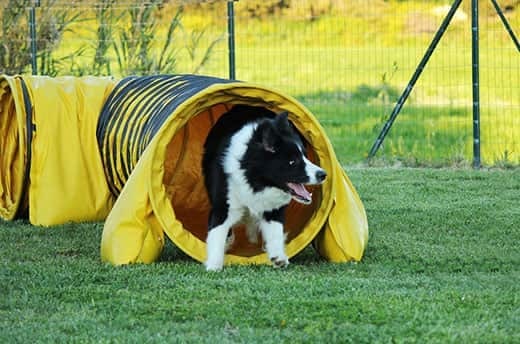
-
Find the right food for your petTake this quiz to see which food may be the best for your furry friend.Find the right food for your petTake this quiz to see which food may be the best for your furry friend.Featured products
 Perfect Digestion Large Breed Puppy Food
Perfect Digestion Large Breed Puppy FoodPrecisely balanced nutrition with Hill's ActivBiome+ prebiotic blend actively contributes to supporting digestive health and overall well-being to help your pet feel their best
Shop Now Small & Mini Mature Adult 7+ Dog Food
Small & Mini Mature Adult 7+ Dog FoodHill's Science Plan Small & Mini Breed Mature Adult Dog Food with Chicken is a complete pet food, specially formulated with ActivBiome+ Multi-Benefit Technology.
Tailored nutrition to support graceful ageing in small dogs. Specially made with a synergistic blend of nutrients for energy & vigor.Shop Now Perfect Digestion Small & Mini Adult Dog Food
Perfect Digestion Small & Mini Adult Dog FoodHill's Science Plan Perfect Digestion Small & Mini Breed Adult Dog Food with Chicken & Brown Rice supports ultimate digestive well-being & a healthy microbiome.
Shop NowFeatured products Kitten Food
Kitten FoodTender chicken chunks in gravy for kittens, with omega-3s for healthy eye & brain development and high-quality protein to support muscle growth. With balanced minerals to promote strong bones & teeth.
Shop Now Hypoallergenic Dry Cat Food
Hypoallergenic Dry Cat FoodHILL'S SCIENCE PLAN Hypoallergenic Adult cat food with egg & insect protein is a complete pet food for adult cat 1–6 years old. It's formulated for cats with delicate skin and stomach, with limited high quality novel protein sources & no grain.
Shop Now Hairball & Perfect Coat Adult Cat Food
Hairball & Perfect Coat Adult Cat FoodHill's Science Plan HAIRBALL & PERFECT COAT Adult cat food with Chicken is specially formulated to effectively help avoid hairball formation in adult cats while promoting a beautiful coat. Thanks to its mix of essential Omega-6 fatty acids, this food benefits the cat's skin and fur keeping them healthy and shiny. Our Advanced Fibre Technology helps reduce hairballs by naturally promoting their passage through the gut. This food is formulated with high-quality protein for a perfectly balanced, great-tasting recipe.
Shop Now -
Dog
- Dog Tips & Articles
-
Health Category
- Weight
- Food & Environmental Sensitivities
- Urinary
- Digestive
- Joint
- Kidney
-
Life Stage
- Puppy Nutrition
- Adult Nutrition
- Senior Nutrition
Cat- Cat Tips & Articles
-
Health Category
- Weight
- Skin & Food Sensitivities
- Urinary
- Digestive
- Kidney
-
Life Stage
- Kitten Nutrition
- Adult Nutrition
Featured articles The Right Diet For Your Pet
The Right Diet For Your PetLearn what to look for in healthy pet food & nutrition, including ingredients, quality of the manufacturer, your pet's age, and any special needs they have
Read More Pet Food Storage Tips
Pet Food Storage TipsWhere you store your cat and dog food can make a big difference in the quality and freshness once it is opened. Here are some common questions and recommendations for optimal storage for all of Hill’s dry and canned cat and dog food.
Read More Understanding Your Pet's Microbiome
Understanding Your Pet's MicrobiomeLearn what a pet's microbiome is, how it contributes to your pet's gut & overall health, and why nutrition is important in maintaining healthy microbiomes.
Read More -


Are you looking for a smart dog? Intelligent dogs have an aptitude for learning, which can make them easier to train than most. But they can also present challenges that might not make them a good fit for everyone.

The list of the world's smartest dog breeds, according to The list of the world's smartest dog breeds, according to a survey of 122 veterinary professionals conducted by Vetstreet, probably comes as no surprise. Border Collies, German Shepherds, Poodles, Australian Shepherds and Golden Retrievers all have a reputation for being intelligent dogs. Here are a few benefits and challenges of each breed to help determine whether one of these smart dogs is right for you.
Border Collie
Topping the list as the smartest breed, there are few things a border collie can't be taught to do. Chaser, a famous border collie, has even been taught to understand the meaning of over 1,000 English words and respond to their commands. These are high-energy dogs with intense focus that is an asset when they're given a job to do, such as sheep herding. But a lack of healthy direction for that focus can cause problems. Border collies need obedience training from a young age with a special emphasis on socialisation, says the American Kennel Club (AKC). Exposing your border collie pup to a variety of people, animals and situations will help him develop into a confident, calm and stable adult. Like most intelligent breeds, border collies have a lot of energy and need a lot of daily activity and exercise to keep them calm and happy.
German Shepherd
There's a reason German shepherds are a popular choice for police and military work. These dogs are not only fast learners, they're fearless, highly adaptable, and they have a natural instinct for protecting their friends. As such, they make excellent guard dogs. On the flip side, German shepherds have a loving and loyal temperament that makes them excellent family companions. German shepherds excel at most every canine sport. Their aptitude for learning makes obedience training a breeze, but these energetic dogs become bored easily and they need at least 40 minutes of exercise a day.


Tasty Tips
Poodle
Poodles love to learn, and they have a sense of humour, making them the comedians of the dog world. While poodles are generally easy to train, they possess a stubborn streak that requires a lot of patience and persistence to overcome. Their happy disposition comes with boundless energy that requires a lot of exercise to burn. They can get bored easily if ignored or left alone for too long without an activity to keep them entertained. It's important to note that poodles come in three sizes – standard, miniature, and toy – and while they're all highly intelligent, the tiny toy poodle is bred to be a lap dog and doesn't require as much physical activity as their larger counterparts. Even so, they'll still need plenty of attention and playtime to prevent destructive behaviour.
Australian Shepherd
This is a loving and devoted breed that tends to be excellent at whatever he sets out to do. Australian shepherds have a strong herding instinct that might cause them to attempt to herd your children, other pets and even passing cars. While these dogs can be a lot of fun, they need a firm yet loving hand to keep them in line, and you'll need to devote a lot of time and energy to burn off their boundless energy. Training from the get go will help keep them happy as well as provide them with much-needed exercise.
Golden Retriever
Golden Retrievers are well-rounded dogs that not only make excellent family pets, but they're also suitable for a wide range of services like search and rescue or helping the disabled. About the only thing they're not good at is acting as guard dogs, a task for which they're way too friendly. Goldens have a sweet and gentle disposition, and they're as eager to please as they are eager to learn. Like the other smart breeds, goldens have a lot of energy and a tendency to get bored. Good activities to tucker out your pup are hiking, swimming and playing lots of fetch. Goldens delight in solving puzzle toys, so it's a good idea to stock up on these if you'll be leaving your golden alone for long periods of time.
What these intelligent dogs all have in common is boundless energy and a tendency to become bored, which can lead to destructive or annoying behaviour. Smart dogs need patient, active pet parents who are willing and able to provide them with a significant amount of daily activity and exercise, in addition to proper training.
Choosing the "Smartest" Dog for You
While these five breeds may be considered the most intelligent breeds, it doesn't mean that there aren't other smart breeds or dogs out there that are perfect for you. Dogs are very loyal pack animals that are looking to be taught how to act from their pack leader. If you're willing to put in the time and training with your dog, any pup can be trained to do a number of incredible things. All it takes is some time, patience, love and training. So, if you're in the market for a new dog, don't hesitate to check out your local animal shelter, where many breeds can be found. These dogs are just looking for a loyal family willing to put in the time with them, and they will reward you for your love and affection by showing you just how smart they can be.


Jean Marie Bauhaus is a pet parent, pet blogger, and novelist from Tulsa, Oklahoma, where she usually writes under the supervision of a lapful of fur babies.
Related products

Hill's Science Plan Small & Mini Breed Mature Adult Dog Food with Chicken is a complete pet food, specially formulated with ActivBiome+ Multi-Benefit Technology.
Tailored nutrition to support graceful ageing in small dogs. Specially made with a synergistic blend of nutrients for energy & vigor.

Precisely balanced nutrition with Hill's ActivBiome+ prebiotic blend actively contributes to supporting digestive health and overall well-being to help your pet feel their best

Hill's Science Plan Large Breed Adult Dog Food with Lamb & Rice is a complete pet food, specially formulated with ActivBiome+ Multi-Benefit Technology.
This food is specifically designed to fuel the energy needs of large breed dogs during the prime of their life.

Hill's Science Plan Perfect Digestion Small & Mini Breed Adult Dog Food with Chicken & Brown Rice supports ultimate digestive well-being & a healthy microbiome.
Related articles

Dog obesity is a significant problem - learn more about helping your dog become trimmer and healthier through improved nutrition.

Learn about snake bites on dogs, including clinical symptoms to look for, what to do if you think your dog was bitten, and treatment & prevention options.

Discover the causes, signs, and treatments of kidney disease in dogs and find methods of supporting your dog's kidney health. Learn more at Hill's Pet South Africa.

Discover how the field of dog science is giving us more and more insights into the inner workings of our furry best friends.

Put your dog on a diet without them knowing
Our low calorie formula helps you control your dog's weight. It's packed with high-quality protein for building lean muscles, and made with purposeful ingredients for a flavorful, nutritious meal. Clinically proven antioxidants, Vitamin C+E, help promote a healthy immune system.
Put your dog on a diet without them knowing
Our low calorie formula helps you control your dog's weight. It's packed with high-quality protein for building lean muscles, and made with purposeful ingredients for a flavorful, nutritious meal. Clinically proven antioxidants, Vitamin C+E, help promote a healthy immune system.


